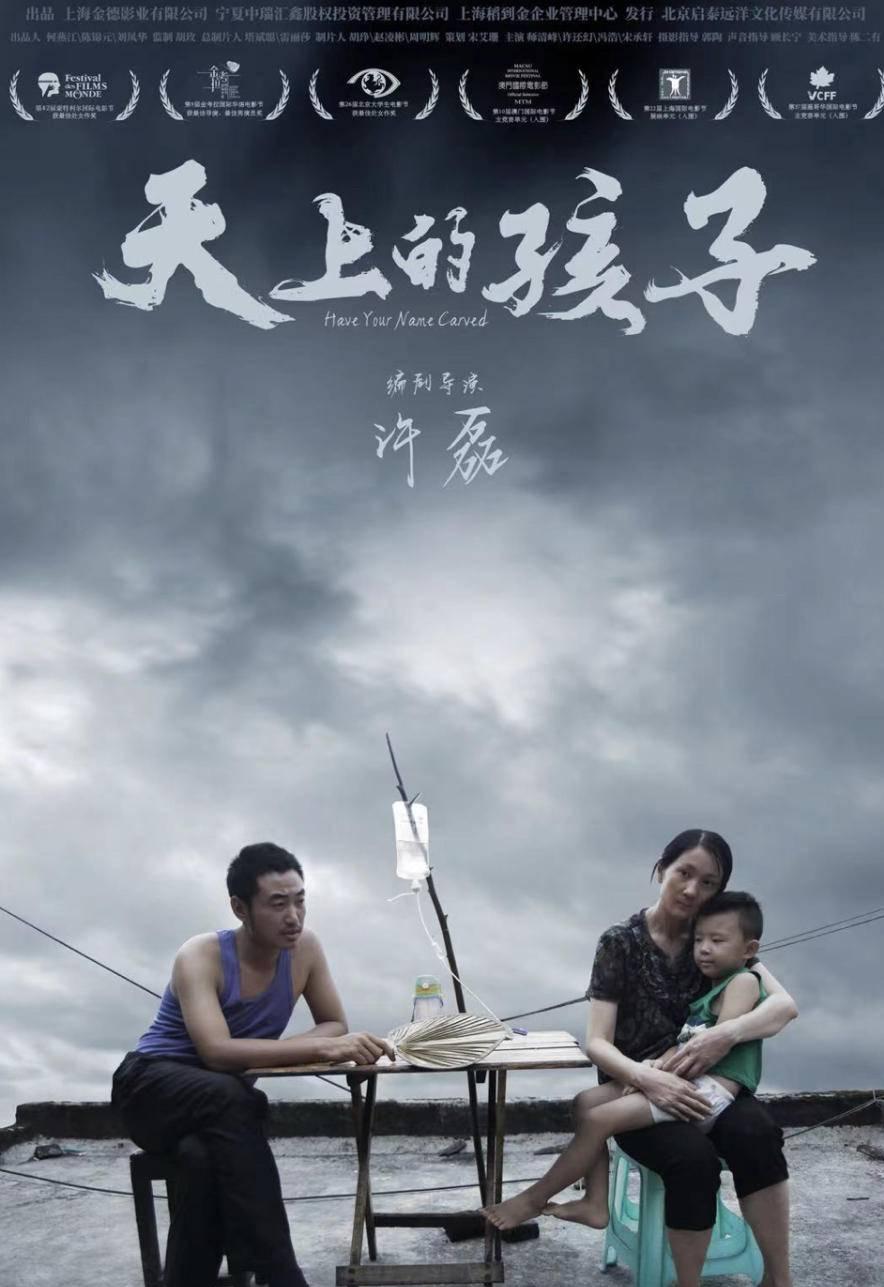The film "Children in Heaven", produced by Hu Mei, one of the famous directors of the fifth generation in China, and written and directed by Xu Lei, is being released in theaters nationwide. On the afternoon of September 25, more than 20 people from Nanjing Media Artist Park walked into the theater to watch the film. Among them are directors, painters, singers, as well as company employees and primary school students, and after watching the film, everyone believes that the film has a strong sense of story and documentary, bland and not lacking in waves and layers, restraint and lack of pain and touching."
"Children in Heaven" tells the story of He Ruji, a couple from Guizhou, and Li Lingxia's 5-year-old only son who was diagnosed with a terminal brain tumor and died soon after. According to the customs of the hometown, the names of children who have died prematurely cannot be erected as monuments, and they cannot enter ancestral graves and genealogies. The father learned that after his son's body was donated in the future, his name would be inscribed on the monument, so he consulted with his wife Lingxia and decided to agree to the donation of the body, so that there would be a place to engrave The name of The Baby.

The story of the film revolves around the couple's intention to donate their son's organs, but it is difficult. In particular, the organ traffickers who are evil with evil intentions have targeted this already suffering family, making the couple's suffering worse. As a father, He Ruji is the pillar of the family, and the helplessness of reality makes this father unable to make a good choice, and can only bear the unavoidable pain of losing his son and the life torment of the child entering the end of life.
Such a film that touches on social reality involves many aspects such as family affection, ethics, morality, doctors and patients, and it is like a mirror that reflects the world. "We can't live now, we can't go back, we can't donate, so why should we?" The whole film uses dialect and simultaneous sound, the ground is grounded, although rough, but the sense of documentary is strong, coupled with the simple performance of Shi Qingfeng and Xu Huanxian, who play the male and female protagonists, increases the thickness of the film, and little by little makes the audience feel excited, until the tears are flowing.
Although the jianghu is sinister, justice is not absent. Media reporters followed up to the dimly lit rental houses to convey a message of love to the society, and public security cadres and police officers promptly arrested organ traffickers to uphold justice, all of which demonstrated the power of civilized society and legal society to tolerate evil forces to do wrong.
Song Jiangbo, a famous director and professor at Nanjing University of Media, believes that although this film does not have a grand scene, it is a powerful film, which makes people feel that people in a difficult situation can often survive. Media personality Wang Jing took her elementary school son to watch the film together, and she noticed that Haiwa's misfortune in the film made his children look at it intently. Such works touch the hearts of children, and edutainment is better than all preaching.
It is reported that "Children of Heaven" has been shortlisted for the Montreal Film Festival and the Vancouver Film Festival before the domestic release.
In the two days since the film was released, online platforms such as Douban and Maoyan have received good reviews. Some netizens said that "the director advocates truth, so the film is also very life-like." The idle pen of riverside outings and going home to make rice noodles is impressive; the long shots that begin with shaking in the hospital have power, and it is indeed a good film", and some netizens say that "doctors and patients, medical treatment, hospice care, and organ donation can all shoot things." The whole film chooses a realistic approach, and the topic is worth encouraging", and more viewers believe that the whole story of the film is full of twists and turns, which is very watchable. The actor's authentic performance allows the film to be viewed as a documentary. The blank space at the end of the end is very allegorical, and the point is reached, which produces a huge imagination space.
Yangtze Evening News/Purple Cow News reporter Kong Xiaoping
Photography / Fan Suli
Source: Purple Cow News